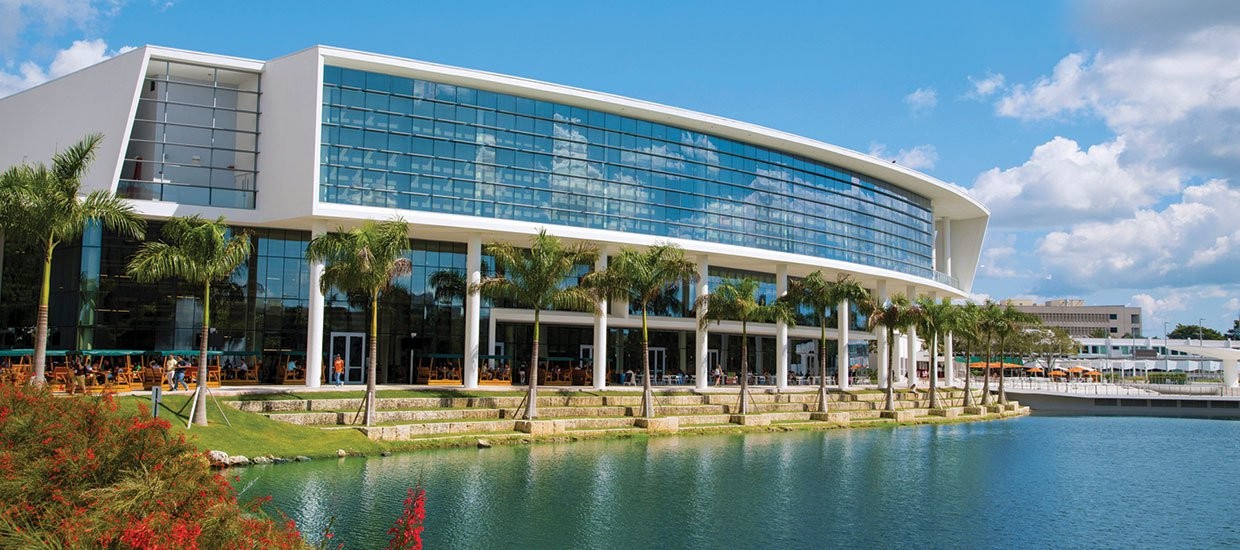University of Miami: Core of team’s mission is supporting student needs
At the University of Miami, the core of the Dean of Students Office’s mission is simple—to be partners in students’ education and success.
Through their office, Ryan Holmes, associate vice president for student affairs and dean of students, and his team focus their efforts year-round on assessing and addressing the needs of students facing mental health challenges; academic conflict; and social, economic, or health difficulties. The team also oversees various aspects of Greek life and spiritual life on campus, supporting students’ journeys outside of their academics.
“Any way that we can touch a student positively and be part of the University’s academic mission to transform lives, we strive to do,” said Holmes. “We strive to do it in a way that’s based in care, commitment, listening, and not being afraid to have tough conversations with students.”
And, through the Sandler Center for Alcohol and Other Drug Education—a part of the Dean of Students Office—staff and students promote healthy lifestyles by sponsoring student-led events and training, explained Rachel Perse, director of the center.
Facilitated by peer educators—a team of students who educate their cohorts on drug and alcohol safety—the Sandler Center implements a comprehensive prevention, intervention, education, and referral program focusing on alcohol and other drug use, misuse, and dependency. “Everything we do is through our peer educators. They are the heart and soul of what we do,” Perse said.
Mecca McCain, a junior studying criminology and psychology, began volunteering for the Sandler Center as a first-year student by attending and supporting tabling events. Feeling inspired by her work, McCain applied to take on a more direct role as a peer educator, where she curates and designs the programs. “What I love about my work with the Sandler Center is that we’re all about awareness and education, not abstinence. Teaching our peers how to be safe is so important,” she said.
Through community outreach and interactive tabling events, the Sandler Center aims to increase awareness and commitment within the University community to create an environment in which a change in attitudes, behaviors, and use of substances is possible and participation in high-risk behaviors is reduced.
Kareena Patel, a peer educator and junior studying finance and accounting, noted the value of peer-to-peer education on the topic.
“When it’s peer-to-peer, students engage in conversation more openly,” Patel pointed out. “They approach us much more as a conversation between friends than maybe they would with a staff member. As peer educators, we can give them advice and resources to make smarter choices.”
Patel, McCain, and their fellow peer educators focus on creative programs that are fun, engaging, and relevant to their cohorts. The team is now gearing up to host a series of events in October to mark National Collegiate Alcohol Awareness Month, which is focused on alcohol safety.
In addition to education and awareness about drug and alcohol use, staff in the Dean of Students Office manage and support student crisis and conflict.
“Our ultimate goal is to get students connected to resources on campus or off campus, if needed, to get through a crisis situation and support them through that,” said Sarah Naturman, associate dean of students and case manager through the Dean of Students Office.
Naturman noted that while it can be daunting to seek support for yourself or a peer about whom you may be concerned, reports are confidential and encouraged. The team of mental health professionals offer crisis intervention, emotional support, short-term counseling for students in crisis, and resources for students affected by sexual misconduct.
Holmes, Perse, Naturman, and their team continue to seek innovative ways to engage students and offer their support through events, programs, and social media.
“Resiliency, to me, means that you don’t have to go through something alone,” Naturman said. “We really encourage students to utilize the resources we have on campus and in our office to help them through challenging times.”

